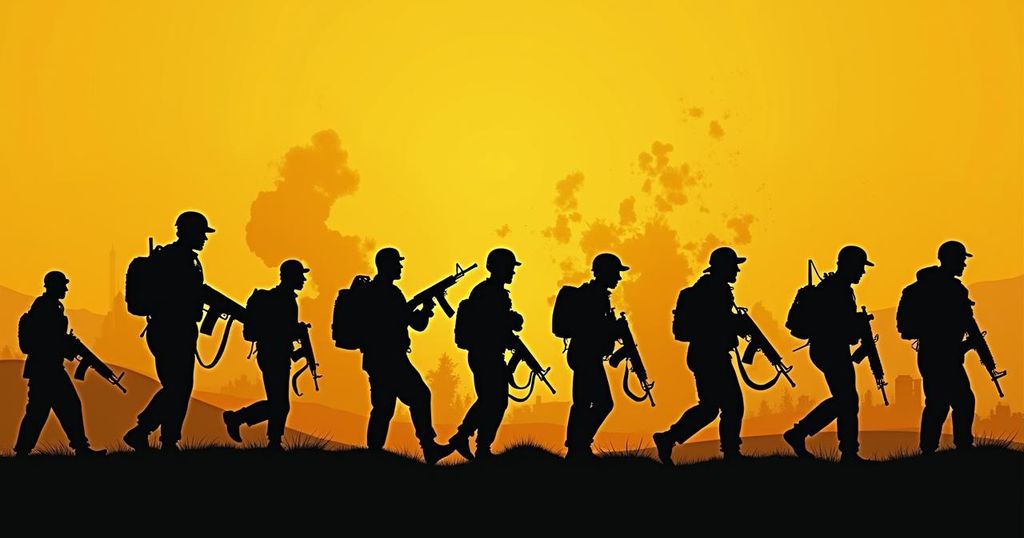Hezbollah’s conflict with Israel has escalated, with Israel conducting extensive airstrikes on Lebanon resulting in numerous casualties. In retaliation, Hezbollah launched multiple attacks on Israel. The situation is drawing international concern due to the potential involvement of Iran and greater implications for regional stability.
The tension between Hezbollah, the Iran-supported militant group in Lebanon, and the Israeli military has escalated significantly, resulting in grave consequences. Following a series of violent encounters over the past year, a recent Israeli bombing campaign targeted over 1,000 locations in southern and eastern Lebanon, claiming the lives of approximately 558 individuals and injuring around 1,800 on a single day—marking Lebanon’s bloodiest day since the civil war concluded in 1990. Additional airstrikes ensued the next day, further exacerbating the humanitarian toll. In retaliation, Hezbollah fired over 100 missiles, rockets, and drones into Israel, although most were intercepted with no severe casualties reported on the Israeli side. Concerns are rising among global leaders attending the United Nations General Assembly in New York about the potential ramifications of this conflict. They fear that it may draw in other more influential actors, notably Iran, which openly supports Hezbollah. To comprehend the significance of Hezbollah in this geopolitical context, it is essential to understand its origins and evolution. Founded in the 1980s amidst the turmoil of Lebanon’s civil strife, Hezbollah was established with Iranian assistance to combat Israeli forces occupying southern Lebanon, a situation that persisted until the year 2000. The organization’s name translates to “Party of God” in Arabic. Since its inception, Hezbollah has transformed into a formidable political and military entity within Lebanon, extending its influence into other regions of the Middle East, including Syria, Iraq, and Yemen. The group boasts a comprehensive infrastructure within Lebanon, encompassing various sectors, such as social services, communication networks, and internal security operations.
Hezbollah emerged as a responsive entity during a tumultuous period in Lebanon’s history, particularly during the Lebanese Civil War (1975-1990). The group was primarily motivated by resistance against the Israeli military occupation, which began in Southern Lebanon in 1982. Over the decades, Hezbollah has evolved from a localized militia into a significant political force, securing seats in the Lebanese parliament and developing a network of social services that reinforces its standing among the Lebanese populace. Iran’s backing has played an instrumental role in Hezbollah’s capabilities, facilitating its expansion and operational reach across the region. Despite its controversial tactics, including armed conflict and terrorism, Hezbollah remains a powerful player in Middle Eastern geopolitics, shaping regional dynamics and influencing various armed conflicts.
The situation surrounding Hezbollah and its conflict with Israel is a complex geopolitical issue with deep historical roots. As the current hostilities intensify, the humanitarian impact in Lebanon is severe, raising alarms among world leaders regarding the potential for broader regional conflict. Hezbollah’s significant military capabilities and its support from Iran highlight the ongoing challenges of diplomatic resolution and stability in the Middle East. Vigorous monitoring of the situation is critical to anticipate further developments and their implications for peace and security in the region.
Original Source: www.nytimes.com







